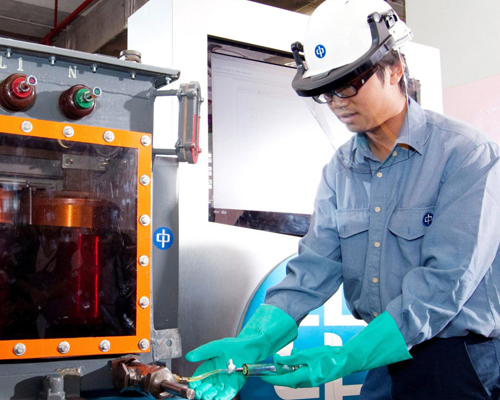Water Testing Laboratory in Coimbatore

We are well lauded company in Coimbatore in the field of Water Testing Laboratory. For any questions Contact Us.
What is the most important water quality test?
Water testing is a broad description for various procedures used to analyze water quality. Millions of water quality tests are carried out daily to fulfill regulatory requirements and to maintain safety.
Why water testing is important
Regular water testing allows building owners and operators to:
- Check to ensure their chosen compliance regime is fit for purpose
- Ensure water is suitable for drinking
- Track changes over time
- Determine the effectiveness of a water treatment system
What are different types of water testing?
There is a wide range of water quality tests used to help determine how safe, or even drinkable, water is to be used in a household setting or otherwise that water test labs perform.
These different types of tests help determine if specific materials or contaminants have infected a body of water, and help inform how it needs to be further treated. Here are just a few types of water testing methods.
Bacteria Tests
There are a range of potential bacterial contaminants that can plague water. One of the most common and most looked for is E. coli bacteria, which comes from fecal matter exposure and can result in serious health issues when consumed. Bacteria testing are essential in determining how safe water is to drink or expose to your skin.
Mineral Tests
The list of mineral testing available could be a thesis paper, for how many there are. A few common and important mineral tests include chlorine and chloride, nitrate and nitrite, lead, copper, iron, zinc, potassium, and sodium.
This wide range of mineral testing is essential and relevant in determining water quality, as different regions or areas of terrain may have more of a build-up of certain types of minerals, which informs what kind of mineral treatments the water actually needs in order to be purified.
pH Testing
PH is a measure of the concentration of hydrogen ions in a solution. The more of these hydrogen ions there are in a solution, the more acidic that water is. Acidity affects the taste of water, but it can also affect how healthy water is to consume. Drinking water that’s not neutral enough in acidity can make people sick!
Maintaining Water Quality in the Lab
The purity of water used in clinical laboratories is essential. While the domestic consumer considers tap water to be “pure,” clinical laboratory scientists regard it as grossly contaminated for their applications.
As diagnostic tests have become more sophisticated and sensitive, the water purity standards have become even more important. High purity water is required at virtually every stage of operation within automated clinical analyzers; therefore it is imperative that this water is low in particulate, ionic, organic, and bacterial impurities which ensure:
- Minimal build-up of bacteria in internal reservoirs
- Minimal carry-over and contamination in cuvette and sample probe washing
- Increased reagent stability
- Greater accuracy and precision in pipetting of samples and reagents
- Greater accuracy in photometric readings
Visit us on Google Maps


